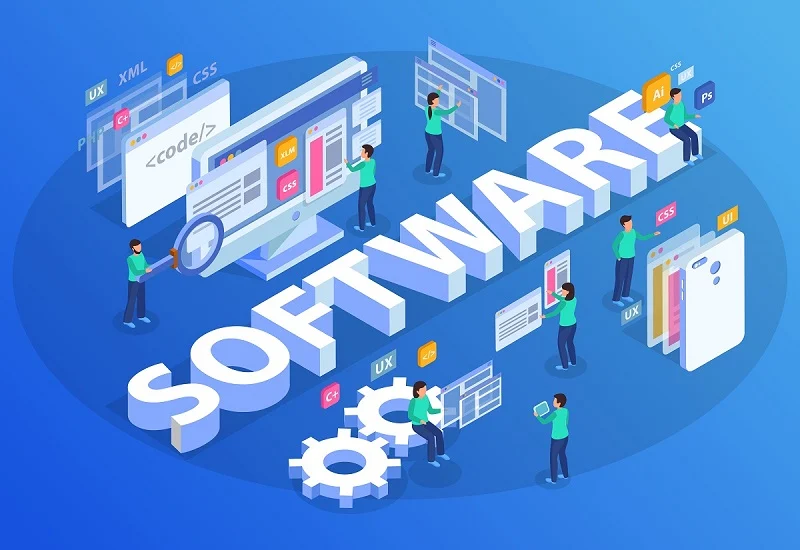In the modern world, businesses heavily rely on various types of software to streamline their operations and improve efficiency. From managing finances to organizing customer data, business software has become an essential tool for virtually every company. In this article, we will explore the six most popular types of business software and how they benefit organizations.
1. Accounting Software
Accounting software is a vital tool for businesses of all sizes, enabling them to manage their financial transactions, generate reports, and ensure accurate bookkeeping. Some popular accounting software options include:
- QuickBooks: A widely used accounting software known for its user-friendly interface and extensive features.
- Xero: Offers a cloud-based solution that makes financial management accessible from anywhere with an internet connection.
- FreshBooks: Ideal for freelancers and small businesses, providing features like invoicing, time tracking, and expense management.
- Wave: A free accounting software suitable for small businesses and startups, offering basic bookkeeping functionality.
2. Customer Relationship Management (CRM) Software
CRM software allows businesses to effectively manage interactions with customers, nurture leads, track sales activities, and deliver personalized experiences. Popular CRM software solutions include:
- Salesforce: A market leader offering comprehensive features for sales, marketing, and customer service.
- HubSpot CRM: Provides a free CRM system with additional marketing tools to help businesses grow.
- Zoho CRM: Offers customizable modules to handle sales, marketing, customer support, and other CRM functions.
- Microsoft Dynamics 365: Combines CRM and Enterprise Resource Planning (ERP) capabilities, suitable for larger organizations.
3. Human Resources (HR) Management Software
HR management software simplifies the entire employee lifecycle, from recruitment to retirement. It helps automate tasks, manage payroll, track employee performance, and maintain compliance. Notable HR software solutions include:
- BambooHR: Provides a user-friendly interface that handles diverse HR tasks such as recruitment, onboarding, and performance management.
- Workday: A cloud-based HR platform that offers comprehensive features, including time tracking and talent management.
- ADP Workforce Now: Designed for midsize to large businesses, this software streamlines payroll, benefits administration, and HR operations.
- Zenefits: Offers an all-in-one solution that covers HR, benefits, payroll, and time tracking.
4. Project Management Software
Project management software assists businesses in planning, organizing, and executing projects effectively. It helps manage project timelines, allocate resources, and track progress. Some well-known project management software options are:
- Asana: Provides a user-friendly interface to create and manage projects, assign tasks, and monitor team progress.
- Trello: Uses visual boards and cards to simplify project management, enabling teams to collaborate effortlessly.
- Basecamp: A popular choice for remote teams, offering tools for task management, file sharing, and communication.
- Jira: Primarily used for software development projects, this software allows teams to track issues and work iterations.
5. Supply Chain Management (SCM) Software
SCM software helps businesses optimize their supply chain processes, manage inventory, track shipments, and improve overall efficiency. Notable SCM software solutions include:
- SAP SCM: Offers comprehensive features to handle supply chain planning, execution, and collaboration.
- Oracle SCM Cloud: A cloud-based solution that integrates logistics, inventory management, and demand planning.
- Infor SCM: Provides end-to-end supply chain management functionalities, including procurement, manufacturing, and transportation.
- JDA SCM: Known for its advanced forecasting and demand planning capabilities, ideal for complex supply chains.
6. Enterprise Resource Planning (ERP) Software
ERP software integrates various business functions into a unified system, enabling seamless communication between departments. It enhances productivity by providing real-time data and streamlining processes. Prominent ERP software options include:
- SAP S/4HANA: Offers an intelligent, cloud-based ERP system that covers accounting, procurement, sales, and more.
- Microsoft Dynamics 365 Business Central: A versatile solution for businesses of all sizes, providing end-to-end visibility and control over operations.
- Oracle NetSuite: A scalable cloud ERP that supports finance, supply chain, and customer management.
- Infor ERP: Provides industry-specific ERP solutions that address the unique requirements of various sectors.
Business software plays a crucial role in enhancing operational efficiency, fostering growth, and improving decision-making capabilities. The six types of business software discussed above are just a glimpse of the vast array of options available to organizations. By leveraging these digital tools, businesses can streamline their processes and ultimately achieve greater success in today’s competitive landscape.

